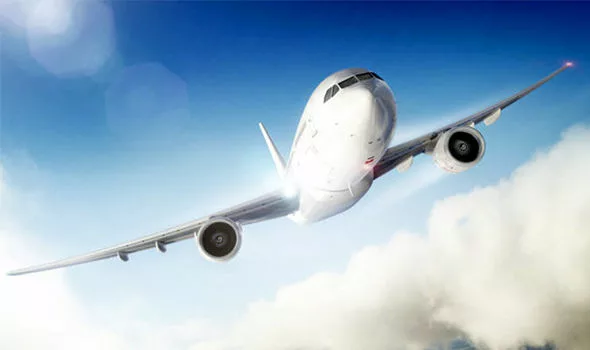Nigeria is missing out on an estimated $3.96 billion annually, as its aviation sector struggles to benefit from the Open Skies Agreement under the African Union’s Single African Air Transport Market (SAATM). Despite being part of a pan-African initiative designed to liberalise air transport, Nigeria’s local carriers are unable to tap into the potential revenue streams, with foreign airlines dominating the market.
According to the Aviation Roundtable (ART), foreign airlines generate over $4 billion annually in Nigeria, while Nigerian carriers earn roughly one per cent of that total from international operations. Experts are raising concerns that Nigeria is not fully capitalising on the opportunities created by the Open Skies Agreement, which allows for greater flight frequencies and more open routes across Africa.
Industry insiders told NATIONAL ECONOMY that the core issue lies in the failure to implement reciprocal policies that would allow Nigerian carriers to compete effectively with their foreign counterparts. John Ojikutu, a seasoned aviation expert, explained that Nigerian airlines are at a significant disadvantage. “Our airlines are struggling to compete due to high operational costs, inadequate infrastructure, and limited government support,” he said.
He added that foreign airlines continue to dominate the Nigerian aviation market, with better-capitalised fleets and wider networks. This has created an uneven playing field, with foreign carriers raking in substantial profits from Nigerian routes, while local airlines struggle to secure a share.
There is also the issue of slot allocation, where foreign carriers are granted more frequent flights to Nigeria without reciprocal arrangements for Nigerian airlines. “If Emirates, for example, is granted 21 weekly flights to Nigeria, a Nigerian carrier should be afforded the same number of frequencies to operate in their country. If they cannot use all the slots, they should be able to sell the unused frequencies to Emirates,” said Chris Aligbe, CEO of BeluJane Konsult.
High operational costs also remain a critical barrier for Nigerian airlines. “We simply can’t compete with foreign carriers, whose operating costs are significantly lower,” said a senior executive at a Nigerian airline, citing inefficiencies in the country’s fuel supply chain as a contributing factor.
Moreover, Nigeria’s airport infrastructure is also underperforming, with many airports lacking the modern facilities needed to handle high volumes of international traffic. These infrastructure deficiencies further undermine the competitiveness of Nigerian airlines in the international market.
Nigeria’s policy environment is also seen as a major hindrance. While other countries have implemented protective measures for their national carriers, the country has not provided sufficient policy support for its local airlines. Allen Onyema, CEO of Air Peace, emphasised the need for strategic government intervention. “Without proper policy support, our airlines will continue to struggle,” he said.
President of the Aviation Roundtable Initiative, Gabriel Olowo, on his part,noted that Nigeria has the population, market, and geographical advantages to be a major beneficiary of the SAATM. “The question is not whether we have the resources to benefit from this agreement, but whether we have the political will and the strategic planning to unlock this potential,” Olowo said.
The chief economist at PriceWaterhouseCoopers, Dr. Andrew Nevin, lending his voice, added that Nigeria’s airports, many of which he described as “dead assets,” have failed to generate returns in line with the investments made in them. He pointed to Nigeria’s $900 billion in dead assets, noting that the aviation sector could be a key contributor to reversing this trend.
Development economist Professor Tayo Bello, echoed the sentiment, arguing that Nigeria’s participation in the Open Skies Agreement must be accompanied by a comprehensive, well-coordinated aviation policy that addresses both the opportunities and challenges posed by liberalised air transport. He said without such a policy framework, the agreement will remain unprofitable for Nigeria, benefitting foreign airlines while leaving local carriers and the Nigerian economy at a disadvantage.
He added that only with the right investments, strategic reforms, and political commitment can the promise of the Open Skies Agreement be fully realised for the country’s economy.





